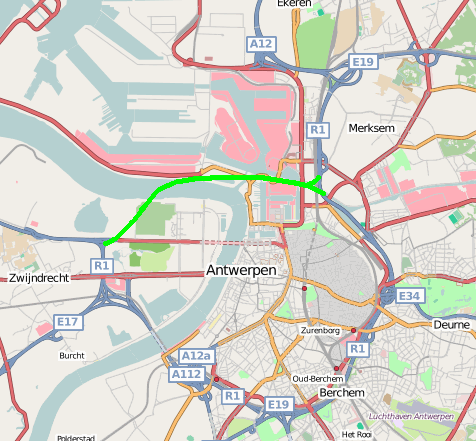
Environmentalists warn Flemish government of ‘historic mistakes and deadlock Oosterweel’
Some 20 environmental activists are calling on the Flemish government to save Flanders from historic mistakes and see the Oosterweel impasse as an opportunity. They are doing so after negotiations between environment minister Zuhal Demir’s cabinet and a number of activist groups failed last week.
“The Oosterweel link means the death knell for climate policy,” the movements argue in a joint note. “Nitrogen is seen as a problem when it comes to agriculture, but not when it comes to transport. This selectivity is shocking.”
According to the action groups – including Milieufront Gent, Vrijdag Voor Toekomst Antwerpen, Grootouders voor het klimaat en Climate Express – the Oosterweel connection “will attract more cars and trucks. Especially since the port of Antwerp wants to expand with a capacity of four million containers.”
The environmental impact report, the action groups say, “does not take into account the suction effect on the rest of Flanders, and thus the additional emissions of fine dust and nitrogen.”
Environmental monitoring claim
The movements further brace themselves for the environmental monitoring claim, which aims to halt the works, licensed or not. “And on top of that, Flemish water quality must be in better condition by 2027,” they conclude. “We will not achieve that objective if we start spreading the most polluted soil – that from the Oosterweel Tunnel – across Flanders.”
“The unbridled growth of the Antwerp port offers us fewer and fewer pleasures and more and more burdens,” the action groups conclude.
The Oosterweel connection is a project to close the Antwerp Ring Road (R1) to improve the accessibility of the city and port of Antwerp. This connection is included in the Flemish government’s Masterplan 2020. It involves 16 infrastructure projects with improvement projects for pedestrians, cyclists, public transport, ships, cars and freight traffic.
Several action groups have already protested against the construction of the Oosterweel connection in recent years. When a year ago PFOS pollution at the 3M plant in Zwijndrecht came to light, it also affected the Oosterweel project, as part of the route was also found to be polluted.
(BELGA)
